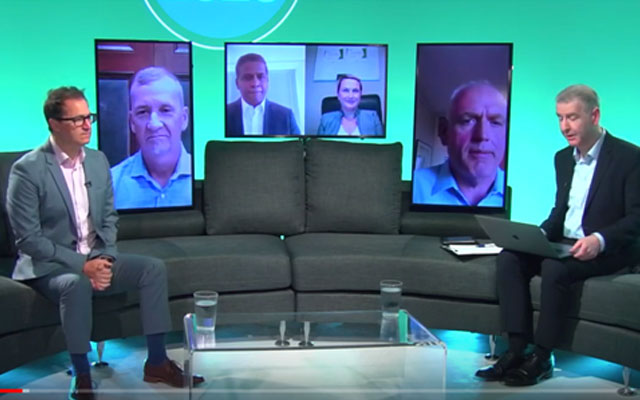
To combat travel challenges presented by the pandemic, the 59th ICCA Congress will be delivered in a hybrid format that takes in six weeks of Global Hybrid Congress Experience across key regions worldwide from September 22, culminating in the main ‘hub’ event in Kaohsiung, Taiwan from November 1 to 3.
The ‘spokes’ will emerge in seven regional satellite locations: Latin America; North America; Cape Town in South Africa; Kuching in Sarawak, Malaysia; Luxembourg in Luxembourg; Malaga in Andalucia, Spain; and Riyadh in Saudi Arabia.

The regional events will involve “detailed discussions and debate around the pathway on the road to Kaohsiung, beyond Kaohsiung, and into the future of our industry”, shared ICCA president James Rees during an online press conference.
“Key to all of these is the culmination of the gathering together of that knowledge in what we have termed The Kaohsiung Protocol…which is a framework identifying major trends and strategies in the meetings industry, and help the international meetings industry to thrive now and into the future,” he detailed.
The decision to turn the Congress into a hybrid event was taken as early as March this year.
“The ICCA Congress should be a beacon of excellence that we all aspire to attend. It is vital that ICCA continues to run its congress this year, despite the (current circumstances). Many of my colleagues on the board felt we needed to be brave, show leadership, and demonstrate that events both face-to-face and in the new digital format can be harmonised and brought together in a way that allows its stakeholder community to do what it does best and loves to do – sharing knowledge, networking and building trust and business relationships,” said Rees in his opening remarks.
To conceptualise and deliver the event’s unique ‘hub and spoke’ format, the association draws on the expertise of Maritz Global Events and its Design Studio Team.
“The theme, Transforming Global Events Together, we chose then for our Congress is perfect today, as we have seen so many aspects of our world transforming,” commented ICCA treasurer Gregg Talley.
“This is an opportunity to show a case study. We’re going on a journey together, doing something that we have never done before, that so many in our industry are just learning to do,” he added.
According to Ben Goedegebuure, enterprise vice president, global and industry, Maritz Global Events, everything that is being done to prepare and execute the Congress will be documented and made available to members for reference at the conclusion.
“There will be a huge amount of data and knowledge that can be shared,” Goedegebuure said.
In response to a question by TTGassociations about the business benefits of the ‘hub and spoke’ format, Rees said it allows ICCA to attain “a connectivity with a wider audience than we’ve ever been able to before”.
Compared to the Congress’s usual three or four days of activities, this year’s version will be “elongated” with greater opportunities for dialogue online at the regional events and face-to-face in Kaohsiung, which translates to “greater ROI for all members”.
The application of The Kaohsiung Protocol for at least 12 months after the Congress will be a legacy of the event, added Rees.
A purpose-built platform has also been designed and constructed for the Congress, allowing one-on-one connections “across space and time” between participants that mirror that of face-to-face gatherings, said Talley.
When asked how would the Congress’s invaluable networking functions overcome the physical disconnect online, Ben Goedegebuure, enterprise vice president, global and industry, Maritz Global Events, told TTGassociations: “We are experimenting with a number of tools (that would facilitate interaction) so that personal connections can still be made. That’s also why the regional hubs have been chosen; they will enable us to bring as many people who want to get together as possible.”
As much as ICCA will attempt to stimulate interaction and networking opportunities, Goedegebuure pointed out that participants must do their part to engage themselves.




















